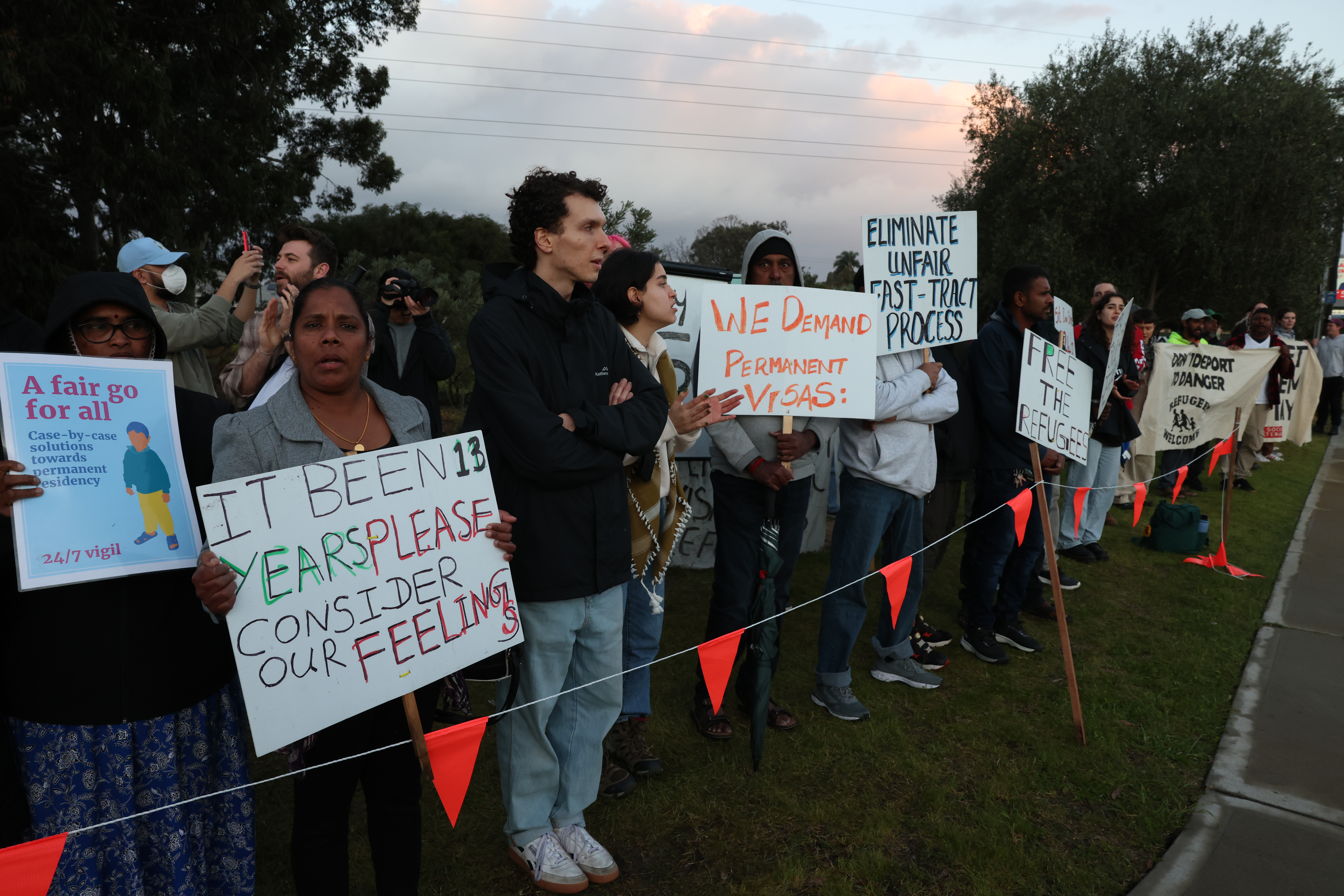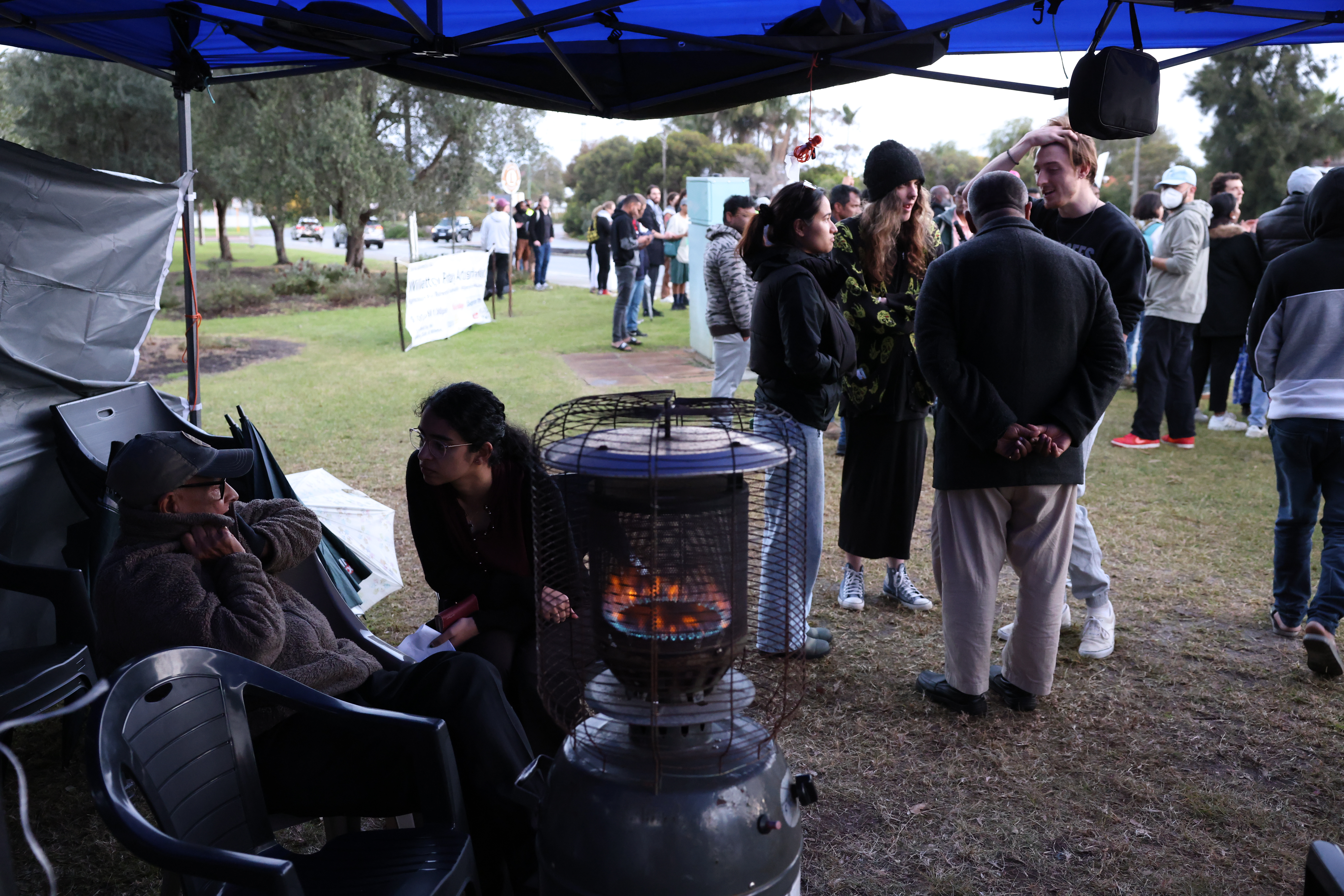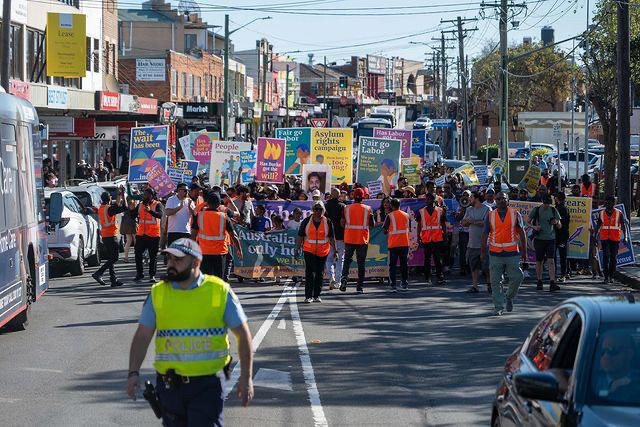Tamils have been protesting across Australia in recent weeks calling on the Australian government to grant asylum seekers with permanent residency after spending years in visa limbo.
Tamils have been protesting across Australia in recent weeks calling on the Australian government to grant asylum seekers with permanent residency after spending years in visa limbo.
In Perth, Tamil asylum seekers have been camping outside Labour MP Sam Lim’s office, a constituency with a high Tamil population, demanding that asylum seekers be recognised as permanent residents.
The sit-in protest, which is currently on day nine, was launched to address the plight of asylum seekers in Australia.
Tamils camped outside Labor MP Sam Lim's office in Perth, Australia.
Many of the protesters are on bridging visas, a short term visa which needs to be constantly renewed. Without permanent residency, asylum seekers do not have access to Medicare - Australia’s universal health insurance scheme, they do not have the right to work or study nor the right to travel.
Last month, Mano Yogalingam, a Tamil asylum seeker self-immolated in Melbourne after waiting for 12 years for a permanent visa. Yogalingam was from Puttalam and fled the island at the age of 11 with his family following threats from the Sri Lankan military. The family arrived in Australia by boat from India in 2012 where he was detained for several months.
Commenting on Yogalingam’s death, Lim reportedly told protesters:
"If you can live for the last 12 years or 13 years in such a suffering state, why [do] you want to take your life?"
"Why? If you can sustain and live, you should have a strong energy to carry on … and you are under a good government," Lim said.
In response, Samuel Kugathas, one of the protest organisers, explained to Lim that asylum seekers are losing hope.
"They have no work rights, they have no study [rights], they have no Medicare," Kugathas said.
"So, if they have a medical sickness, where do they go? If they need money, there is no government support … they can’t rent a house.”
One protester, Stephni Jesuthasan told SBS News that she and her family are currently on bridging visas after they fled Sri Lanka in 2013. The family were placed in detention on Christmas Island before being moved to offshore detention centres in Malaysia and Indonesia.
Jesuthasan explained the dangers of returning to Sri Lanka.
"We were constantly faced with questioning and threats at home … it was unsafe for us to stay there," she said.
"Dad was taken away at times, where he was blinded and tied up and hurt."
Meanwhile in Melbourne, asylum seekers frustrated by the lack of progress on their cases, have been camped outside Home Affairs Minister Tony Burke’s office for over a month, demanding the government to address their grievances.
Tamils rally through Sydney, Australia, on August 31. (Photograph courtesy of Tamil Refugee Council.)
On August 31, over 500 people rallied through Sydney to echo nationwide calls for asylum seekers to be permanently protected and stop the risk of deportation to places, like Sri Lanka, where asylum seekers face persecution.
The Office of the High Commissioner for Human Rights recently released a damning report which highlighted ongoing arbitrary detention, torture, and sexual violence perpetrated against Tamils by Sri Lanka’s security forces, “mainly in Jaffna, Kilinochchi, Mannar, Mullaitivu, and Vavuniya.”
Speaking to Tamil Guardian, Tamil Refugee Council spokesperson Renuga Inpakumar said:
“We will not stop until this system of cruelty and indifference is dismantled. We will continue to support the 24/7 protest, to raise our voices, and to challenge the policies that perpetuate the injustice.”
“Refugees are not asking for special treatment. They are demanding what is rightfully theirs - the right to live in safety, to be reunited with their families, to work, to study, and to contribute to the country they now call home. They are demanding the chance to rebuild their lives, to be treated with the dignity and respect that every human being deserves,” Inpakumar added.




